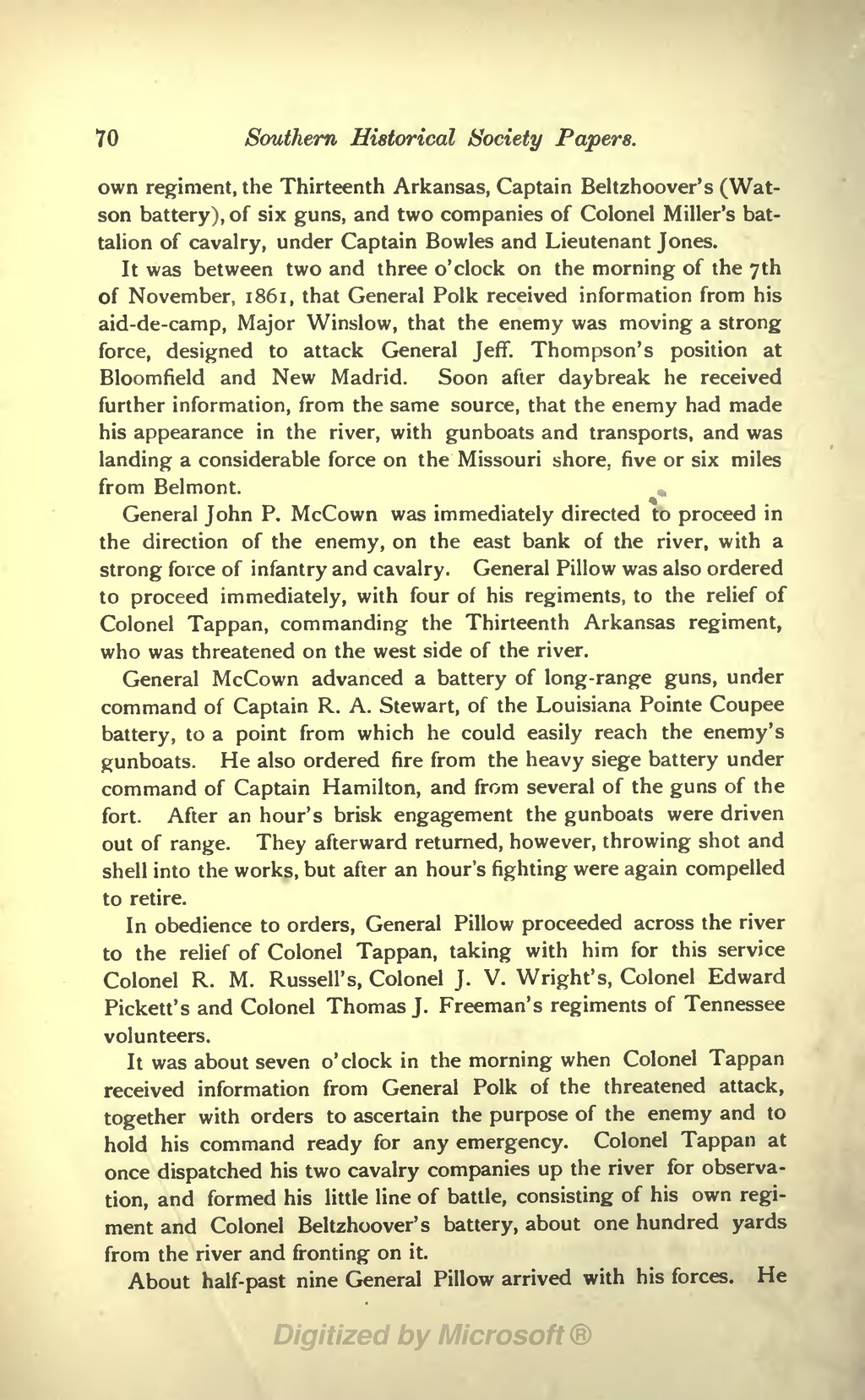70 Southern Historical Society Papers.
own regiment, the Thirteenth Arkansas, Captain Beltzhoover's (Wat- son battery), of six guns, and two companies of Colonel Miller's bat- talion of cavalry, under Captain Bowles and Lieutenant Jones.
It was between two and three o'clock on the morning of the yth of November, 1861, that General Polk received information from his aid-de-camp, Major Winslow, that the enemy was moving a strong force, designed to attack General Jeff. Thompson's position at Bloomfield and New Madrid. Soon after daybreak he received further information, from the same source, that the enemy had made his appearance in the river, with gunboats and transports, and was landing a considerable force on the Missouri shore, five or six miles from Belmont. ,
General John P. McCown was immediately directed to proceed in the direction of the enemy, on the east bank of the river, with a strong force of infantry and cavalry. General Pillow was also ordered to proceed immediately, with four of his regiments, to the relief of Colonel Tappan, commanding the Thirteenth Arkansas regiment, who was threatened on the west side of the river.
General McCown advanced a battery of long-range guns, under command of Captain R. A. Stewart, of the Louisiana Pointe Coupee battery, to a point from which he could easily reach the enemy's gunboats. He also ordered fire from the heavy siege battery under command of Captain Hamilton, and from several of the guns of the fort. After an hour's brisk engagement the gunboats were driven out of range. They afterward returned, however, throwing shot and shell into the works, but after an hour's fighting were again compelled to retire.
In obedience to orders, General Pillow proceeded across the river to the relief of Colonel Tappan, taking with him for this service Colonel R. M. Russell's, Colonel J. V. Wright's, Colonel Edward Pickett's and Colonel Thomas J. Freeman's regiments of Tennessee volunteers.
It was about seven o'clock in the morning when Colonel Tappan received information from General Polk of the threatened attack, together with orders to ascertain the purpose of the enemy and to hold his command ready for any emergency. Colonel Tappan at once dispatched his two cavalry companies up the river for observa- tion, and formed his little line of battle, consisting of his own regi- ment and Colonel Beltzhoover's battery, about one hundred yards from the river and fronting on it.
About half-past nine General Pillow arrived with his forces. He
